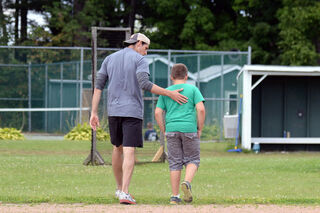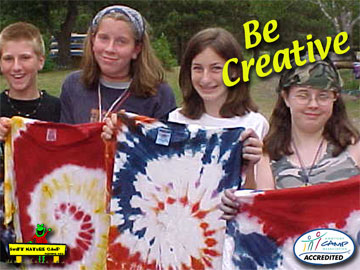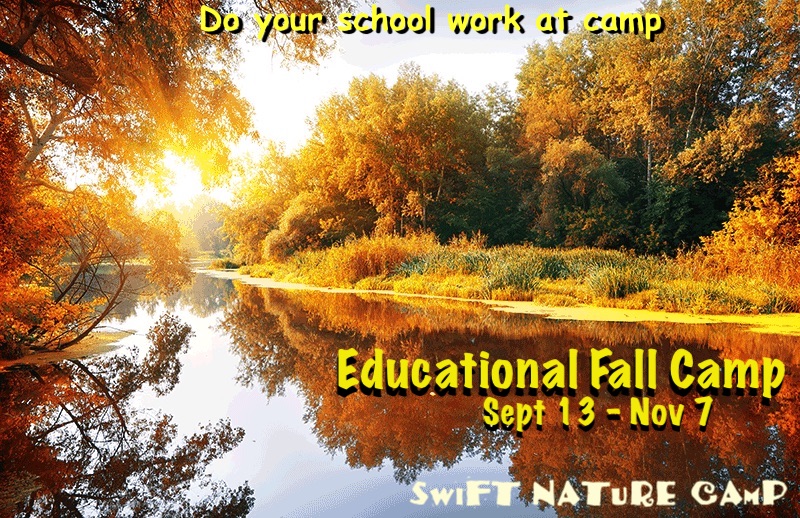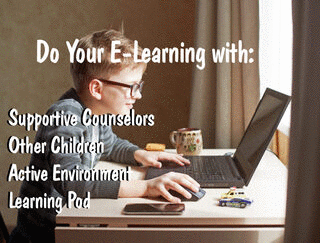

Stephen Wallace is director of the Center for Adolescent Research and Education (CARE), a national collaborative of institutions and organizations committed to increasing positive youth outcomes.
Pitching Magic
When unresolved grief goes to summer camp.

- Camp appears to be a key context for developing relationship skills. This is consistent with past research on camp, but [new] findings suggest that the relationship skills young people gain at camp might play a role beyond the camp experience.
- As a context for developing relationship skills, preliminary findings suggest that camp is an integral part of a young person’s overall learning, alongside school and other educational contexts.
- Camp is a unique learning experience that appears to promote skills transferable to 21st century school and work contexts.
- Preliminary findings suggest that camp is a safe place for young people to explore who they are and how they want to be viewed by others.
- Camp gives campers the opportunity to practice being around and appreciating people with attitudes, values, and abilities different from their own.
- Camp helped me make new friends. (96%)
- Camp helped me to get to know kids who are different from me. (93%)
- The people at camp helped me feel good about myself. (92%)
- At camp, I did things I was afraid to do at first. (74%)
Their parents explain the outcomes for their kids, including the following.
- My child gained self-confidence at camp. (70%)
- My child continues to participate in some of the new activities he or she learned at camp. (63%)
- My child remains in contact with friends made at camp. (69%)
As leaders in “trauma-informed” education, summer camps also support children who have experienced trauma in their lives.
In her Camping Magazine article “A Time to Grieve: Dealing With Loss and Change This Summer and Beyond” editor-in-chief Marcia Ellett points to work of camp professionals, and others, in ensuring “best practices and educational resources to facilitate the mental, emotional, and physical health of grieving children and their families.” She cites the important impact of the National Alliance for Grieving Children, a nonprofit organization that raises awareness about the needs of children and teens who are grieving a death and provides education and resources for anyone supporting them (Ellett, 2020).
It takes a village.
Speaking about trauma-informed programming, Linda Ebner Erceg, RN, MS, PHN, adds, “That also means not only understanding the prevalence of trauma … but also recognizing that trauma histories will arrive with some campers and staff, and those histories have the potential to color the camp experience. Being trauma-informed also means assessing camp practices to determine their potential to trigger trauma responses …” (Ebner Erceg, 2018).
Trauma is the experience of a person to an event that is emotionally painful or stressful. Trauma can result in lasting mental and physical effects and is defined by the experience of the survivor. According to recognizetrauma.org
The behaviors caused by trauma sometimes depend on a child’s age when the symptoms appear. However, some symptoms can affect all children, including:
- Major changes in eating or sleeping
- Nightmares
- Anger or rage
- Unreasonable fear
- Unusually strong startle reactions
What if trauma-informed became trauma-resolved? It has, in the form of Experience Camps, which offer free one-week camps for boys and girls “who have experienced the death of a parent, sibling or primary caregiver.”
Sara Deren, Chief Experience Officer, and Cara Allen, Chief Clinical Officer, told me on a Zoom call that their camps provide a blend of typical camp activities with a clinical component to help kids process grief:
Grief can change the trajectory of a child’s life. The only question is how. We know that grief camp can help foster resilience. It's a place where kids can laugh, cry, play, create, remember the person who died, or forget the grief that weighs them down. It's a place where they can feel “normal,” because everyone there has been through something similar and understands what it's like to lose someone important to them.
In interviews, three Experience Camps campers, Peyton (age 10), Nani (age 16), and Graham (age 17) – each of whom lost a parent – told me about their losses and reflected on their stays.
Peyton:
- I lost my dad when I was five. My mom has been there for me and when I cry, she says life is unfair sometimes.
- Camp was very fun, though I was scared of the fish. I made a lot of friends I could talk to. I liked the water swing into the lake and I did it a bunch of times, even though I was afraid.
-
Nani:
- The day I celebrated my 10th birthday is the day my dad passed away. It helps to share memories of him with my brother and uncle.
- At camp, I have a community of people who understand the loss of a parent. It’s helpful to recognize I am not alone in this and that I am not as broken as I was feeling, I went to camp for six years, made great friends, and had group chats. Everybody knows you as a person and encourages you to be happy again and not feel guilty about it. Going through grief makes time stop, so it’s powerful to have the camp experience.
Graham:
- When I was in sixth grade, I was walking home from school and saw my dad’s car in the driveway two hours earlier than usual – not a good sign. My mom had brain cancer with chemo and radiation for five years. I was confused and dazed but I never lost hope. My relationship with my dad is strong, so I talk about it with him at dinner every night. When I have my breakdowns, I call him. I was sad and angry. I was in denial. Being vulnerable is the biggest challenge.
- My first summer at camp in Maine was a little scary. I was pretty silent but listened to the other kids, which was helpful. I thought, ‘Wow, they’re strong.’ Every one of them lost someone they loved, which helped us to form a community. I am afraid of heights, but I did the rock-climbing wall anyway. And I learned to comfort others. It’s the best week of the year.
The common themes of loss, struggle, challenge, and positive risk-takingabound. Pitching the magic of summer camp for children with unresolved grief.
Information about other camps for grieving children, including Camp Amanda the Panda, Camp Erin, and Comfort Zone Camp can be found herehttps://cdn.psychologytoday.com/sites/all/modules/contrib/extlink/extlink_s.png"); width: 1px; height: 1px; position: absolute; overflow: hidden; clip: rect(0px, 0px, 0px, 0px); white-space: nowrap; clip-path: inset(50%); border: 0px; background-position: 2px center; background-repeat: no-repeat no-repeat;">.
References
ACA. (2020a). Research and evaluation. American Camp Association. https://www.acacamps.org/research (30 Nov. 2020).
ACA. (2020b). The value of camp. Benefits of Camp. American Camp Association. https://www.acacamps.org/campers-families/because-camp/benefits-camp/value-camp (30 Nov. 2020).
Browne, L. (2018). Research 360: promising themes from phase 1 of the 5-year impact study. January 29, 2018. American Camp Association. https://www.acacamps.org/news-publications/blogs/research-360/research-360-promising-themes-phase-1-5-year-impact-study (30 Nov. 2020).
Stephen Wallace is director of the Center for Adolescent Research and Education (CARE), a national collaborative of institutions and organizations committed to increasing positive youth outcomes.
DID YOU KKNOW YOUR CHILD CARE TAX CREDIT CAN HELP REDUCE THE COST OF SUMMER CAMP?
INVESTOPEDIA MAKES THES SUGGESTIONS.
Childcare benefits
Paying a daycare center, babysitter, or even summer-camp fees for a child can be a lot cheaper with tax benefits. A child which constitutes a qualified tax dependent who is 13 or younger, as well as a disabled dependent of any age, make parents eligible for a tax credit that can ease their federal income tax obligation.3
- Up to 35% of qualifying child care expenses (capped at $3,000) for a single child.4
- Up to $6,000 for multiple children or dependents.4
This tax credit is intended for both employed and self-employed parents and guardians who earn income regularly. Individuals and couples who have been unemployed for a part of the year can also use it. To qualify, all the following conditions must be met:
- You must have earned income in the past tax year (both your spouse and you if you are filing together).4
- You must be the child’s (or dependent’s) custodial parent or caretaker.4
- You must either work and earn an income, or actively be looking for employment.4
- Your child/dependent must be 13 or younger—unless they have a physical or mental disability that makes them unable to care for themselves.4
- The provider(s) of childcare must not be your dependent or spouse, nor the child’s parent.4
The IRS has a broad spectrum of expenses it considers childcare-related, which are not limited to daycare and babysitters. The full list of potentially eligible expenses includes the following:
- Babysitter or licensed childcare center3
- Maid, housekeeper, or cook who cares for the child/dependent3
- Summer camps, day camps, and even sports camps can qualify if they care for the child/dependent while the parents are working. Overnight camps are not included and do not qualify3
- Before-school and after-school care for children of 13 and younger3
- Nurse, or other care providers for disabled children or dependents3
ACA works with accredited camps to provide:
What are some of the 300 ACA standards ?
What's the difference between state licensing of camps and accreditation by ACA?
How do ACA standards exceed state licensing requirements?
How can I verify that my child's camp is ACA accredited?
To learn more about how to choose a summer camp visit www.summercampadvisor.com
As parents we all want to be the best parents we can be. Our goal is to help develop children who are kind, considerate, independant and can do things for themselves. In short, we want our children to be thier personal best. Yet, thier is one thing that every parent MUST remember. The video is a parent skill video that will help you help your child. The steps outlined are the same steps we train our camp counselors to do in helping a child. Watch this video to learn this helpful 4 step program.
Keeping Summer Camp Magic Alive Through COVID-19
 At the end of summer camp 2019, as we all said goodbye to SNC for the year and started to make plans of returning in 2020, we did not anticipate an obstacle quite like COVID-19. As the pandemic started to grip the nation, life as we knew it was about to change. It didn’t take long for my college to shut down, originally only being an extended spring break, which quickly turned into remote learning from my hometown for the rest of the year. Friendships made at school were suddenly taken away, plans that were made for the end of the school year, all gone thanks to a pandemic. Yet, despite all of this, SNC 2020 still happened as planned, with a few adjustments of course.
At the end of summer camp 2019, as we all said goodbye to SNC for the year and started to make plans of returning in 2020, we did not anticipate an obstacle quite like COVID-19. As the pandemic started to grip the nation, life as we knew it was about to change. It didn’t take long for my college to shut down, originally only being an extended spring break, which quickly turned into remote learning from my hometown for the rest of the year. Friendships made at school were suddenly taken away, plans that were made for the end of the school year, all gone thanks to a pandemic. Yet, despite all of this, SNC 2020 still happened as planned, with a few adjustments of course.
Coming to camp wearing a face mask would be the first noticeable change that took place in the summer. As I showed up, the bright smiles I was used to seeing on the first day back were replaced with a piece of fabric that made breathing more difficult. Usually during staff training, all the male counselors would sleep in one cabin and all the female counselors would sleep in another cabin. This year, we were split up, having to open multiple cabins so that we could minimize the risk of spreading the virus if one of us had it. Despite this, some things didn’t change. We still created strong bonds with each other and grew from strangers to friends, we still laughed and joked, it still felt like we were at camp. With camp set up and ready to go, there was only one crucial piece missing, the kids.
Our first session is always the shorter Discovery session. It is designed for campers who have never been to Swift to feel out if this camp will become their new summer home. In previous years, our biggest worry was homesick kids, as many of them had never been away from home for two weeks. This year, we had the unique obstacle of COVID, which would test our abilities as a team, communicating with each other if we were worried about a possible case of COVID, enforcing children to wear face masks in hot and humid weather, having a UV light in the cabins, and having a reworked schedule. With all of these changes, some of the returning counselors wondered if it was even the same camp we had come to love. As it would turn out, it was. It became clear quickly that there did not appear to be any cases in camp, and as no one could leave and come back, all worries of spreading the virus were gone and we got to enjoy camp as we knew it. After the first week, we relaxed COVID restrictions, the masks we once wore over our faces were no longer present, instead replaced by the beaming smiles of kids. 3rd activity and Free Time came back, which was fantastic, because even counselors love Free Time. Camp was back to normal, and there was no greater feeling. As the second week came to a close, so too did the session, and we sent home all of our new friends happy, dirty, tired, and most importantly, COVID free. For them, it was the end. For us, it was merely the beginning.
While Discovery felt difficult with COVID policies, the first Explorer session would present a new issue. Many kids in these sessions have been coming here for years, and they knew how the schedule worked and what camp felt like, so when that was all changed due to a virus, they faced a similar problem the returning counselors had. Was this the camp that they had grown to love and call home in the summer? The hardest part about this session was not being able to hug all the kids you remembered from years prior as they got dropped off. We had hit the reset button, our guards were up, and we were ready to beat our invisible virus enemy again. As a counselor, I am always shocked by how much the kids change over a year of time. In the months we aren’t at camp, little boys and girls turn into young men and women. Some kids feel like they’ve grown a foot since you’ve last seen them. Seeing these changes is one of the most exciting parts of this job, because even though they’ve changed on the outside, they are still the same kids on the inside. There were several returning campers I didn’t recognize at first glance due to their growth and the face mask over their mouth. After settling back into our COVID scheduling, it again became clear that the chances of the virus being present here were quite low, and a bit into the second week of camp, we relaxed restrictions. All of a sudden, it was back to normal, the bell woke us up, we stood shoulder to shoulder in the bathroom all trying to brush our teeth, and we high fived and sang on our way into the dining hall. Camp was back, and for a longer time during this session. Free Time and 3rd activity allowed us all to meet new people and make new friends, whether they had been coming for years or this was their first year here, camp was in full swing. Smiles, laughter, and singing filled the dining hall, and the returning campers remembered why they come back every summer. The second week quickly came to a close and the third week flew by, bringing us to the end of another session. Again, we sent the kids home happy, dirty, tired, and COVID free.
When the final session of the summer came around, we knew COVID cases were rising, and some of us began to worry about having the virus at camp. As the final group of campers arrived, we all had to put masks back on and completely restart, which was very difficult for both staff and campers who stayed for 6 weeks. We had just enjoyed living mask free at camp, and for one last time, we started all over again. However, the first week flew by and we once again began to relax COVID policies more and more, until we were able to return all the way back to normal camp. The last session always feels the fastest, and this one was no exception, and felt like it ended as quickly as it started and the summer was coming to a close. Due to our strict policies, and possibly a little bit of camp magic, we were very fortunate not to have a single case of COVID amongst campers or staff.
We always tell the campers that camp is a magical place, and some choose to believe it, and some don’t. After this summer I can say, without a doubt, this is the most magical place to exist. Despite there being a pandemic, we still had camp. Even with COVID restrictions, we still had fun. And even though case numbers grew as the summer went on, no one here ever got the virus. Against all odds, we had another successful summer, filled with laughter, singing, and a ridiculous amount of sand in everything we owned. We would wake up every morning, feeling thankful that we were at camp, having fun, and being safe, even if it meant wearing a face mask. But the days where the masks came off, there were screams and cheers of joy, because it meant that we were finally back home for the summer, the way we wanted it to be all year. And it made leaving even more bittersweet than it usually is, because we overcame an invisible enemy, by working together, by using patience, knowing the best days were ahead of us, and by uniting as a community to ensure we could all get the experience that we wanted to have. If that isn’t the very magic of camp at work, I have no idea what is. This summer exemplified what camp is about, adapting to change, working together, and overcoming any challenges that come along. With summer 2020 behind, we are already looking forward to summer at SNC 2021. Until then, keep smiling, respect one another, and when it’s summertime again, we will be up here waiting for you to return.
Fall Camp at SNC!
 As the summer of 2020 came to a close, we had many reasons to be grateful here at Swift Nature Camp. We were grateful for the families who sent their children to camp, and the faith they had in us to take care of them in uncertain times. We were grateful that we were able to send every one of the kiddos back home healthy and virus-free. And, of course, we were grateful for the opportunity to open Swift for our first ever Fall Camp!
As the summer of 2020 came to a close, we had many reasons to be grateful here at Swift Nature Camp. We were grateful for the families who sent their children to camp, and the faith they had in us to take care of them in uncertain times. We were grateful that we were able to send every one of the kiddos back home healthy and virus-free. And, of course, we were grateful for the opportunity to open Swift for our first ever Fall Camp!
Getting to spend extra time at camp is always a blessing, but there is something about being here in the fall that makes it so special. A lot of the great parts of summer camp are still present: we do fun activities like boating and arts & crafts, play classic games like capture-the-flag and zookeeper, and make memories with friends old and new. But the changing of the seasons brought new and exciting changes to camp, as well. We have new clubs to choose from every week, like kayaking, reading, ukulele, camp choir and more. Our wonderful camp cook has made more kinds of soup than we can count, as well as all the hot chocolate we'd ever need! We even carved pumpkins and had an all-camp snowball war! Think it was too cold to swim? Think again! We all took part in what I'm certain was the coldest "Polar Bear Swim" this camp has ever seen! But the cherry on top of our Fall Camp sundae? The natural beauty of northern Wisconsin. It's no secret how picturesque this area is in the summer, but living amongst the trees as they change colors and shed their leaves is truly a sight to behold.
Thank you again to all of the families who made fall camp possible. To those families who couldn't make it this fall, we hope you all stayed healthy and enjoyed your fall as much as we did, and we'll see you all next summer!


|
|
Dear Fellow Parents,
There is no doubt that this is a challenging time to be a parent. How do we make the best decisions about what is best for our kids, in an unprecedented time in history? If there were ever a time that we are called to pay attention to our kids’ needs, and to find a balance between our logical brain, parent’s heart, and gut instinct, that time is upon us right now. And new situations call for new solutions.
I am the parent of a bright, creative, artistic, insightful, funny, and social 13-year-old daughter. She is an only child in a two-household family. Her dad and I have each been working from home since March.
Although I am sharing this from my perspective and experience as a parent, I also come from a background in education and psychology. I have taught and counseled middle school, high school, and college students, taught Child & Adolescent Counseling at the graduate level, and as of this year have been in private practice as a psychotherapist for twenty years. Naturally, that colors my view.
Last Spring when school went online, I watched my daughter try to connect to middle school life through the only avenue available, the computer. We expanded her screen-time so that she could at least see her friends virtually. As the weeks went on, so did the monotony, and the absence of normal interactions with friends, classmates, and teachers became – especially for an only child – a heavy burden. It was painful to see a once lively kid now sitting at the dining room table with her head in her hands, trying to make the best of a bad situation, and feel, as a parent, that I had no options to offer.
We hoped that by summer, the virus would be tamed and she could go to the summer day camp she’d attended for the past few years. That was not to be.
We live in a community that has made the national news for anti-mask protests. Under the circumstances, I do not feel comfortable sending her to an environment where the population reshuffles daily. The prospects for her summer looked quite bleak.
Then a parent friend mentioned something about the safety bubble that some sleep-away camps had been able to create. I quickly began researching. Long story short, my daughter ended up spending three weeks at Swift Nature Camp in Northern Wisconsin, and happily did two weeks of full quarantine and daily temperature taking to be able to go.
To say this was a drastic departure for all of us is an enormous understatement! She had never been to overnight camp, and in fact, was never big on going to sleepovers at all. Yet, I put her on a bus, alone, to a place I’d never seen, to be supervised by people I’d never met, for three weeks! It was a chance for her to have the freedom to be a kid.
New situations call for new solutions.
Research shows that the social aspect of these childhood years is critical in the formation of self-esteem and self-mastery. For a kid, it’s the feeling that I can learn and grow, I know what I can do, and I can be trusted to do it. How kids come to see themselves is connected to how they are seen and acknowledged by others. They learn who they are and who they want to be during these years. This is the time of life when they begin to move away from us in increments that help them grow. What will become of this generation of kids who cannot even leave the house? This worries me, for my child, and for all children.
I was not ready to send her back to the school building this fall for the same reason I couldn’t send her to the day camp. But the thought of her—again—spending months glued to a screen and calling that “school” is terrible too.
So, when Swift Nature Camp offered a Fall Camp option, it felt like a brilliant relief!
Here is a chance to do online school, yet be outdoors having fun with other kids, and rather than suffering with monotony and loneliness, to have an extraordinary experience!
Yes it is expensive. But, here is how I see it. There are times when it cost more money to take care of our kids. Our family used to spend about $1,000 per month on day care and diapers. And that was over ten years ago!
The Fall Camp offers a once-in-a-lifetime experience, to have a “normal” kid experience, life free from many stressors, and an exceptional adventure, rather than being limited and constricted. This is a chance to be free and adventurous and learn new things, a chance to be outdoors soaking up all the wonderful aspects of nature, instead of being stuck inside alone. In my logical mind, parent’s heart, and trusty gut, a “once in a lifetime experience” is worth maxing out the credit card for.
And I know that the 8-week time period seems like a long time. I’ve heard parents say that they can’t imagine having their child gone so long. I understand this, and I will definitely miss my daughter a LOT – but, if I can provide her an opportunity to have an exceptional experience, that feels to me like part of my responsibility as a parent.
In other words, I do feel it is my job to “suck it up,” so to speak, and let her go have the freedom to run and yell and hike and kayak and canoe and play Capture the Flag and fall into bed exhausted from fresh air. I can’t give her that right now. But Swift Nature Camp CAN.
My parents grew up during the Great Depression, and it was a point of reference for them for their entire lives, and for me too, as it affected how they saw the world. Covid-19 will always be a point of reference for our kids in the same way. What will that mean for them? For us, as parents, I believe it means that new situations call for new solutions, and it is our job to use absolutely everything we have to help them through this time.
Sincerely,
Dianne
Dianne Frances, MFA, MS, LPC, NCC
Board Certified Psychotherapist

Welcome to Fall Educational Camp High School Students
We are currently looking for High School Students who are willing to lead during our Educational Camp. You will not only be in-charge of staying current with your own schooling and keeping your grades up but helping the children in your cabin. Qualities required include maturity, self motivation, child friendliness and being prepared to lead students in a professional manner. Fall Camp Jr Counselors will require less drama, more responsibility, leadership and motivation than a summer LIT because they will be working directly with one counselor. If you believe you can do the above, Please complete the below questions and email to This email address is being protected from spambots. You need JavaScript enabled to view it.
Jr. Counselors Cost is $600 per week with Jr. Counselors making $500 for their time at camp. Tuition is payable over 4months beginning Sept 1st at $1200 per month.
QUESTIONS FOR JR. COUNSELORS
Junior Counselor Application: SNC Fall Camp 2020
- 1) Why do you want to be a Junior Counselor at Fall Camp?
- 2) Because you will still be a student, schoolwork will still be your primary responsibility. How much time do you think you will need for schoolwork daily? What kind of grades do you expect to receive this year? How confident are you in your ability to complete all your schoolwork on time and with minimal oversight?
- 3) Which subjects would you be most comfortable assisting campers with?
- 4) What 3 words do you think your former counselors would use to describe you? Please give examples?
- 5) A Junior Counselor should be a leader and role model for everyone at camp. What are the top leadership skill you already have? How are you going to show it?
- 6) Describe an instance at SNC in which you positively impacted a younger camper’s life.
- 7) Fall Camp will still be camp, but with some big differences (school-first environment, daily screen time, smaller cabin groups, etc.). How will you adjust to these changes and help campers do the same?
- 8) Which part of Fall Camp are you most excited for? What are you most apprehensive about?
- 9) What does the phrase “Child-appropriate” mean to you?
- 10) What will you do to stop the spread of gossip and negativity?
-
Fall Educational Camp
Please read in total this page to better understand what Fall Camp is all about - More Info
.















